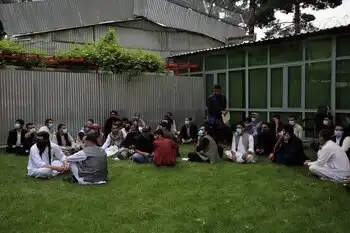
The thousands of interpreters who worked side by side with U.S. troops for two decades have remained in limbo, however, leading to scrambling in Washington to find a way to protect them from the Taliban and others once U.S. forces are gone.
“We're actively working on every possible contingency to make sure that we can help those who have helped us,” a senior administration official said, confirming a New York Times report.
The plan is to use the Special Immigrant Visa category to process the interpreters once they’re moved to a third country, likely to happen in August.
Some of the interpreters have languished in government bureaucracy for years and are still waiting to receive their visas. The U.S. government has identified a group of these applicants already in the SIV pipeline for lift out of the country.
“That’s what tons of us have been asking for. So it’s a good thing. But I’m not confident that every single person who helped us and the several others who are threatened by the Taliban are all going to be out of the country in July, or that most of them even want to be out of the country in July,” said Rep. Tom Malinwoski (D-N.J.). “And so the best way to help the great mass of Afghans who are at risk is to help the Afghan government survive this onslaught from the Taliban and I’m not seeing enough movement there.”
In Kabul, the U.S. Embassy will continue to function even after the American pullout and will continue to process Afghans identified as eligible, “and we will continue to surge resources to process applications to the fullest extent possible,” the official said. “We will also keep working with Congress to identify where we can make the SIV application process more efficient, including eliminating duplicative paperwork and adjusting requirements that do not impact national security.”
Adding to the complexity is an outbreak of COVID-19 at the U.S. Embassy in Kabul, with more than 100 employees testing positive, prompting the compound to be placed on lockdown and throwing a new wrench into the efforts of staffers to process visas.